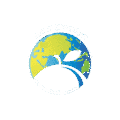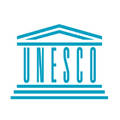YUNGA 的合作伙伴都是谁?
YUNGA将联合国各组织、民间社会组织、政府机构(包括学校)及青少年团体紧密联合一起。来自社会和环境部门的专家(包括教育工作者、政策制定者、实定工作者及青少年组织) 也共同為YUNGA资源和材料的发展作出贡献。所有YUNGA的合作伙伴都拥有着同一个目标,那就是教育培养儿童和青少年,提高他们的能力, 通过他们的想法和行动来关心并保护自然环境,及生活在其中的各种生物。
这一国际性的合作使YUNGA的活动遍布全世界,并结合国家及地方的宣传:YUNGA的理念是全球性的,但YUNGA的活动则由当地社区直接展开。.
全球性的分支,地方性的根源!
YUNGA partners include:

Bioversity International
Bioversity is an international research organization dedicated solely to the conservation and use of agricultural biodiversity working on projects in over 100 countries with about 300 research partners. Bioversity produces research that helps conserve and harness biodiversity to secure dignified and sustainable livelihoods for the poor, provide better nutrition to the undernourished, and protect threatened ecosystems.
www.bioversityinternational.org

CarboSchools
CarboSchools is about creating partnerships between secondary school teachers and climate researchers from several leading carbon science laboratories in Europe. In these partnerships, scientists and teachers co-operate to give young people practical experience of research through true investigations and interactions with real scientists.
www.carboeurope.org/education/index.php
Connect4Climate (C4C)
Connect4Climate is a campaign, a competition, and a community dedicated to raising awareness about climate change issues around the world. Connect4Climate’s goals are to connect and amplify climate change initiatives, to engage the most diverse sectors with innovation and creativity, and to tap into the rich potential of global youth as powerful agents of change.

Convention on Biological Diversity (CBD)
The Convention on Biological Diversity is dedicated to promoting sustainable development by recognizing that biological diversity is about more than plants, animals and microorganisms and their ecosystems – it is about people and our need for food security, medicines, fresh air and water, shelter, and a clean and healthy environment in which to live.

Global Soil Partnership (GSP)
The Global Soil Partnership is a mechanism aiming to improve the governance of our planet’s limited soil resources in order to guarantee healthy and productive soils for food security, as well as support other essential ecosystem services.

The Intergovernmental Oceanographic Commission (IOC) of the United Nations Educational, Scientific and Cultural Organization’s (UNESCO)
IOC-UNESCO is the United Nations body for ocean science, ocean observation systems, ocean data and information exchange, as well as ocean services, such as tsunami warning systems. Its mission is to promote international cooperation and research, and to apply this knowledge to the improved management, sustainable development and protection of the marine environment.

Leaders in School
Leaders in School represents a large, international network of schools. Leaders in School produce the 'Student Leaders' e-zine, which also comprises a Teachers' Module, and offers diverse Leadership Education Programmes.
www.leadersinschool.com.au

Plymouth Marine Laboratory (PLM)
PML is a dynamic, highly innovative and impartial provider of scientific advice, research and solutions on the marine environment. PML’s research mission develops the expertise, tools and technologies needed to make significant advances in examining and solving the detailed processes that underpin issues affecting the marine ecosystems.
www.pml.ac.uk

Real Food Systems
RealFoodSystems.org is an advocacy platform of actionists, proactively combatting the planetary emergency by transforming food systems as a #1 solution to the climate and interrelated crises. Our vision is a future where plant-based, whole food is the foundation for human and planetary health. Our YOUTH AMBASSADOR PROGRAM (now 70+) inspires action, empowering young people by creating tools and a network to design a healthy future.

TakingITGlobal
TakingITGlobal is a global network of young people who are learning about, engaging with, and working towards tackling global challenges. TakingITGlobal empowers youth to become actively engaged and connected in shaping a more inclusive, peaceful and sustainable world.

United Nations Convention to Combat Desertification (UNCCD)
UNCCD is the sole legally binding international agreement linking environment, development and the promotion of healthy soils. The Convention’s 194 Parties work to alleviate poverty in the drylands, maintain and restore the land’s productivity, and mitigate the effects of drought.

United Nations Environment Programme (UNEP) and TUNZA
UNEP’s objective is to provide leadership and encourage partnership in caring for the environment by inspiring, informing and enabling nations and peoples to improve their quality of life without compromising that of future generations. TUNZA is an initiative for children and youth that is developing activities in the areas of capacity building, environmental awareness and information exchange.
www.unep.org and www.unep.org/Tunza

United Nations Educational, Scientific and Cultural Organization (UNESCO)
This specialized United Nations agency focuses on education, social and natural science, culture and communication as the means to build peace in the minds of men and women. We must create holistic policies that are capable of addressing the social, environmental and economic dimensions of sustainable development.
www.unesco.org and www.unesco.org/new/en/social-and-human-sciences/themes/youth

United Nations Framework Convention on Climate Change (UNFCCC)
192 countries around the world have joined an international treaty that sets general goals and rules for confronting climate change. The functioning of the Convention depends on a series of groups and agencies. They operate at the centre of a lively debate.
http://unfccc.int

United Nations Children's Fund (UNICEF)
UNICEF is the driving force that helps build a world where the rights of every child are realized. It has the global authority to influence decision-makers, and the variety of partners at grassroots level to turn the most innovative ideas into reality. That makes it unique among world organizations, and unique among those working with youth.
www.unicef.org

United Nations Programme on Youth (UNPY)
The UN Programme on Youth is the focal point on youth within the United Nations. It aims to build an awareness of the global situation of young people, as well as promote their rights and aspirations. The Programme also works towards the greater participation of young people in decision-making as a means of achieving peace and development.
http://undesadspd.org/Youth.aspx

UN-Water
The UN-Water Decade Programme on Capacity Development (UNW-DPC) collaborates with UN-Water members and partners on individual, institutional and organizational capacity development in a range of thematic areas related to water.

World Association of Girl Guides and Girl Scouts (WAGGGS)
WAGGGS is a worldwide movement providing non-formal education where girls and young women develop leadership and life skills through self-development, challenge and adventure. WAGGGS brings together Girl Guiding and Girl Scouting Associations in 145 countries across the globe, with 10 million girls taking part.
www.wagggsworld.org

World Bank
The World Bank is a vital source of financial and technical assistance to developing countries around the world. It is not a bank in the common sense, as it is made up of two unique development institutions that are owned by 185 member countries — the International Bank for Reconstruction and Development (IBRD), and the International Development Association (IDA).
www.worldbank.org

World Food Programme (WFP)
The World Food Programme is a United Nations agency working to combat global hunger. In emergencies, WFP is on the frontline, delivering food to save the lives of victims of war, civil conflict and natural disasters. After the immediate emergency has passed, WFP uses food to help communities rebuild their shattered lives.
www.wfp.org
World Health Organization (WHO)
WHO is the coordinating authority on international health within the United Nations’ system. It does this by providing leadership on matters critical to health and engaging in partnerships where joint action is needed. Promoting good health through the life-course cuts across all work done by WHO, and takes into account the need to address environment risks and social determinants of health, as well as gender, equity and human rights.

World Meteorological Organization (WMO)
WMO is the UN system's authoritative voice on the state and behaviour of the Earth's atmosphere, its interaction with the oceans, the climate it produces and the resulting distribution of water resources. WMO has a membership of 188 Member States and Territories and specializes in meteorology (weather and climate), operational hydrology and related geophysical sciences.
www.wmo.int

World Organization of the Scout Movement (WOSM)
The World Organization of the Scout Movement is an international, non-governmental organization composed of its recognized national Scout organizations. There are more than 31 million Scouts made up of youth and adults, both boys and girls, in 161 countries around the world.
www.scout.org

WWF
WWF is an independent conservation organization with the mission to stop the degradation of the planet’s natural environment and to build a future in which humans live in harmony with nature, by conserving the world’s biological diversity, ensuring that the use of renewable natural resources is sustainable, and promoting the reduction of pollution and wasteful consumption.

Young Professionals' Platform for Agricultural Development (YPARD)
YPARD serves as a global platform through which young professionals can express their ideas and realize their full potential towards a dynamic agricultural research for development. The Platform facilitates exchange of information and knowledge among young professionals across disciplines, professions, age and regions, and promotes agriculture among young people.
www.ypard.org/ypard
